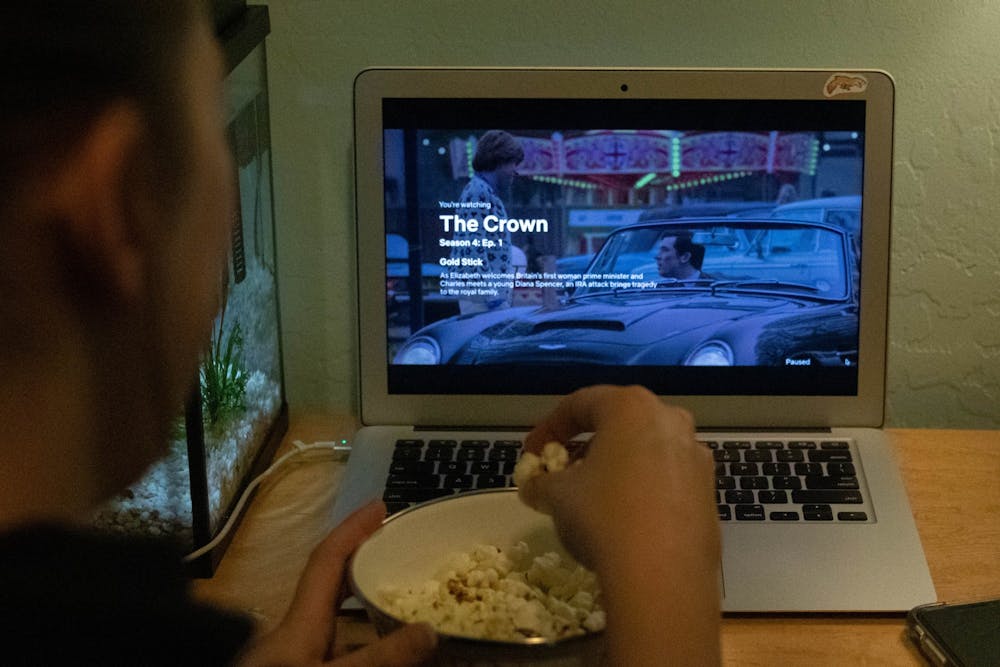In the latest season released this month of the Netflix drama "The Crown," which follows Queen Elizabeth II, many fans finally got what they had been waiting for: Princess Diana. She is the chief attraction of this season and public adoration for the late princess is soaring once again with fond remembrance.
But the primary reason I had started watching the show was my curiosity about how a real-life depiction of an imperialist institution would handle sensitive issues like colonization and former beliefs of racial supremacy with a modern audience.
The show begins in 1947, the year the British Empire lost India, one of its biggest colonies. While the obvious disdain of the royal family and its close allies toward this newly independent country is very realistically portrayed, "The Crown" fails to represent the struggles of the people of that country.
What is often not understood or conveyed in world history is that colonization did not end with independence for most countries. Independence was only the first step on a long path to recovering from years of subjugation.
A few of the oldest characters on the show are Winston Churchill and Lord Mountbatten, the last viceroy of India. Churchill is revered for "defending" the north-western frontier of India from tribal attacks while Mountbatten is severely mocked by Churchill and a few others for being "the man who gave India away."
It is frustrating to hear an imperial sympathizer talk about India as though it was theirs to give away. Just as it is painful to be reminded of the beliefs of racial superiority of the powers that ruled my country for nearly two centuries.
But this is expected and only a very truthful account of the sentiments of the British empire and even its common people back at that time.
What is inexcusable is not turning the focus even once onto the mess that the imperialists left behind in India in exchange for independence.
The nation was cleaved into pieces. Independence was given on the condition that the once united subcontinent would be divided into two countries. The polarization that had been fostered by the Empire to keep the natives unorganized and weak caused a massive riot. Entire communities were uprooted and forced to migrate from one part of the subcontinent to another with nothing but the clothes on their backs.
The Partition of India in 1947 remains one of the bloodiest chapters of Indian history that is severely underrepresented in world history.
An honest biopic of the British royal family that dates back to the 1940s can't exist without an open conversation about colonization. A fair review of imperialist history should not praise certain characters for their loyalty to the crown and their services in colonies without giving a voice to the oppressed native inhabitants of those colonies.
The royal family's interaction with their remaining colonies is shown with utter condescension throughout the first two seasons of "The Crown.”
The queen's visit to Kenya in 1952, when she was still Princess Elizabeth and Kenya was still under British dominion, is shown in a warm, romantic light, filled with tree houses and wild elephants. In her first formal speech to the people of Kenya, she talks about how impressed she is that Nairobi has been urbanized since the last time she was there, how it is less "savage."
This kind of indifferent racism is prevalent throughout the show. The matter-of-fact tone in which certain characters say insensitive words suggests the creators of the show are aware of the racism and have chosen to be honest about portraying it.
While this is perfectly understandable, there is no part of the show that openly displays the insult and discontent felt by the victims of this racist behavior. The Kenyans are shown to be servile and adoring admirers of the young royal and her husband, which is not only a patronizing depiction of the people of this country but also ignorant about the injustice they faced throughout the period of their colonization.
When British aristocrats in the show talk about nationalist sentiments stirring in the last colonies standing, one is free to imagine these nationalists are rebelling without any solid reason.
This incomplete representation in "The Crown" victimizes other countries too. Notable among them are Egypt and Ghana. It is clearly implied by events in the show that these countries are going astray after independence and still need to be guided by firm — but "well-meaning" — imperialist hands.
The vilification of the Egyptian leader Gamal Abdel Nasser and the Ghanaian leader Kwame Nkrumah is alarming because it is so convincing.
Nasser is shown as a headstrong terrorist who illegally seizes the Suez Canal. Nkrumah is branded a shrewd politician who is turning his back on the Commonwealth and col+luding with Russia.
As a national of a former colony, I know only too well how little the real history of colonies is known to the world, especially in the West. It is very easy to convince viewers that leaders like Nasser and Nkrumah were shallow, scheming militants.
In reality, they were visionaries who inspired the people of their respective countries as well as other anticolonial revolutionaries in Africa to come together and take a stand against colonial oppression.
No leader is perfect. But, judging them only by those actions that have caused discomfort to an established power is a suppression of truth.
The fact that these two iconic characters are shown in such an unflattering light whereas Churchill, who was at least partly responsible for the famine of 1943 in India, is idolized and painted a hero goes to show the double standards of the series in terms of representation.
Reach the reporter at abhilasha.mandal@asu.edu and follow @AbhilashaMandal on Twitter.
Like State Press on Facebook and follow @statepress on Twitter.




